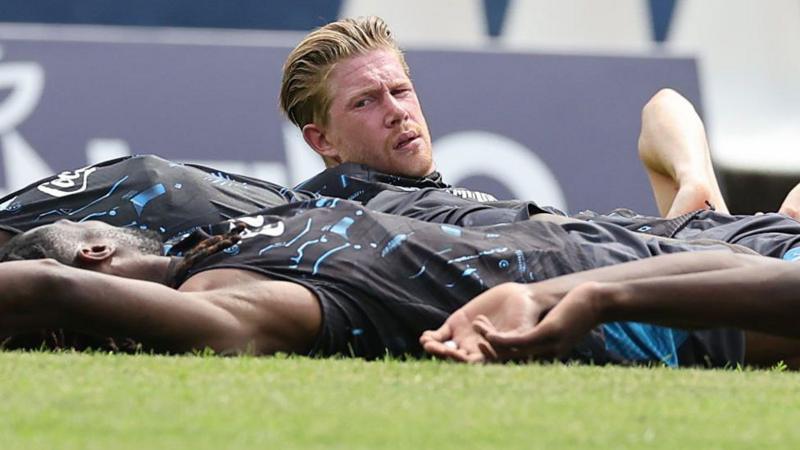Discover Italy's Enchanting Tradition with This Mountain Retreat Experience!




Every summer, as the heat intensifies and streets of cities start to empty, football clubs across Europe return to training with one main goal in mind: preparing for the grueling season ahead. While many top clubs from England, Spain, and France embark on high-profile, globe-trotting tours full of sponsor engagements and international friendlies, Italian teams uphold a tradition that feels refreshingly quaint in modern football: the summer mountain retreat.
In Italy, the tradition of holding pre-season camps in the cooler, serene settings of the country's mountainous regions endures as a vital part of summer preparations. Rather than flying thousands of miles for exhibition matches, teams from Serie A to the lower leagues immerse themselves in local communities nestled in the Alps or the Apennines.
These retreats, known locally as 'ritiri,' are as much a rite of passage as they are a strategic move. They offer an opportunity for new signings to gel with their teammates and for coaches to instill tactical discipline without the constant glare of global attention. While the commercial pull of international tours is strong, Italian clubs seem to recognize the value of solitude away from the media frenzy, focusing instead on building team spirit and physical fitness in tranquil settings.
Moena, a picturesque town in the Dolomites, and the alpine village of Sestriere are two popular destinations where teams like AC Milan, Juventus, and Napoli have spent weeks honing their skills. These towns, with their pristine natural landscapes and welcoming local communities, provide a stark contrast to the bustling metropolis environments where the teams usually compete. The fresh mountain air is believed to aid players' physical conditioning, while the peaceful surroundings help focus their minds purely on football.
For teams, these retreats are also about connectivity, allowing players to interact with fans on a more personal level. Open training sessions are common, where supporters can watch their heroes prepare up close, an interactivity rarely afforded in the mega stadiums. Moreover, local businesses thrive with the influx of players, staff, supporters, and media, boosting the local economy during the club's stay.
At the heart of this approach is a deeper philosophy about the human aspect of football; the idea that players are not just assets but individuals who benefit from close-knit, focused environments. Coaches like Massimiliano Allegri of Juventus and Simone Inzaghi of Inter Milan are known proponents of these camps. They believe that the isolation from urban distractions accelerates team bonding and aligns the squad with the manager’s strategies before the pressures of competition mount.
While modern football is often criticized for its commercialization, the Italian adherence to summer retreats in the mountains demonstrates a commitment to tradition that places sporting values at the forefront. It harks back to a time when preparation was solely about sporting excellence and team cohesion, rather than fulfilling commercial obligations or expanding global brand reach.
Critics might argue that ignoring overseas tours represents a missed opportunity for brand expansion and revenue collection. However, for many Italian clubs, the priority remains clear: cultivating a competitive and unified team is paramount, and they believe the mountain retreats offer the perfect environment to achieve this.
In this era of football, where analytics and advanced metrics often dominate discussion points, Italy’s simple yet profound dedication to mountain retreats underscores a different kind of investment: an investment in the human element of sport. It’s a striking reminder that in the race to globalize, some traditions have an enduring value that transcends financial gain, fostering environments where footballers can excel, away from the relentless pace of modern life.
As long as these retreats continue to yield positive results on the field, they will undoubtedly remain an integral part of Italian football culture, preserving a unique legacy in the fast-evolving landscape of the beautiful game.